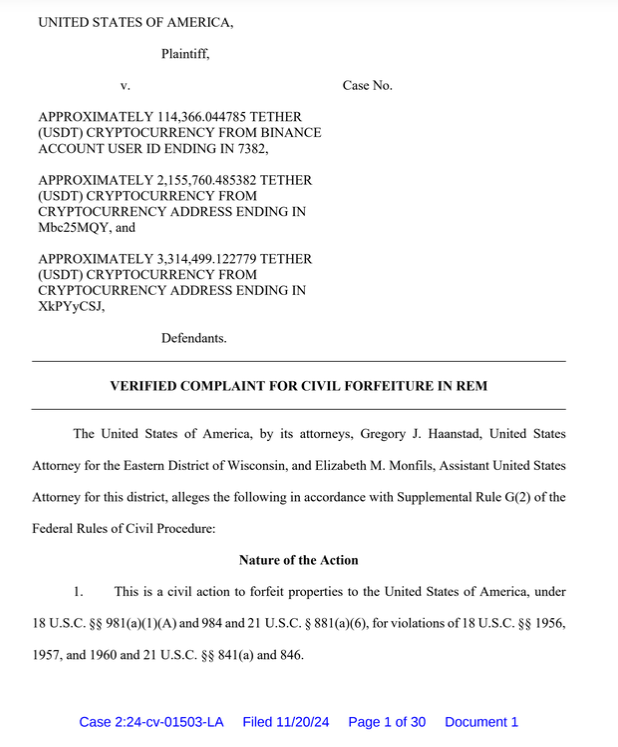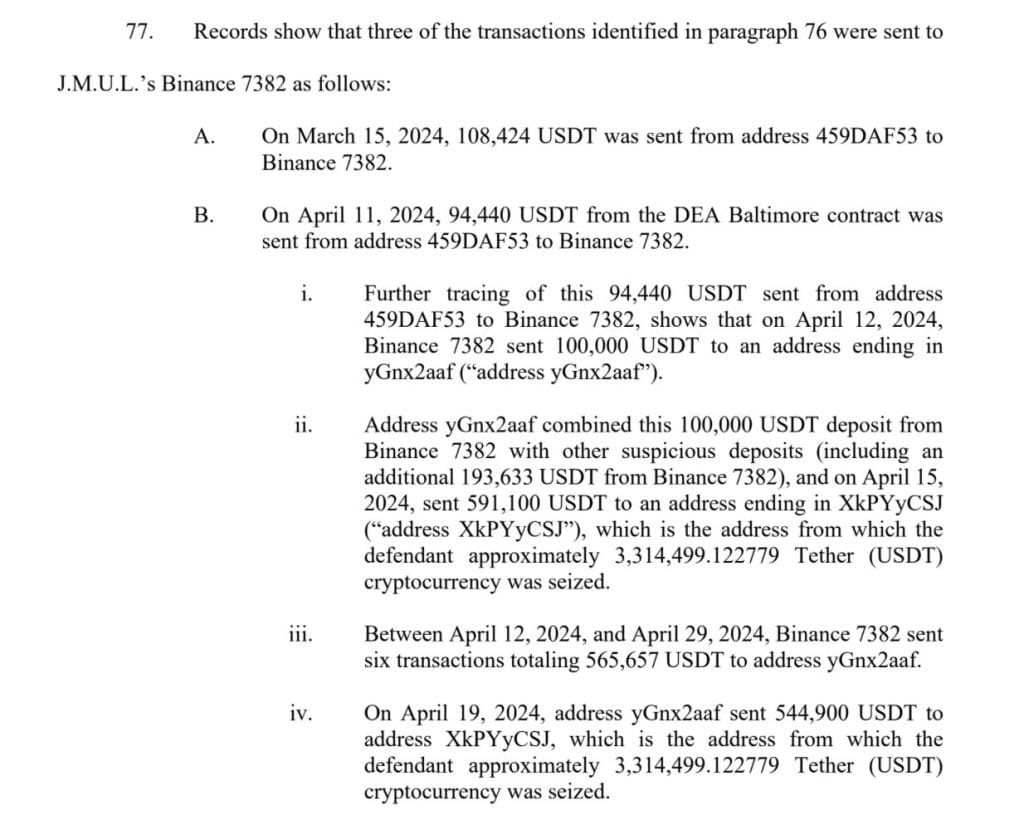Last updated:
 Why Trust Cryptonews
Why Trust Cryptonews

A recent investigation has allegedly revealed that global drug trade operations commonly utilize Tether (USDT). The coin is priced much cheaper in some countries, opening an avenue to buy money for a lower price.
According to 404 Media, citing two court documents (one, two), Mexican and Colombian drug cartels, including the notorious Sinaloa cartel, have increasingly relied on cryptocurrencies, especially USDT, to facilitate their illicit operations.
According to a confidential source, USDT is available in Mexico at a discounted rate due to its links to drug proceeds.
The source explained that Mexican-based groups often sell USDT at a lower price than its market value, knowing its association with criminal activity taints it.
These same USDT tokens are then sold at higher prices in countries like Colombia.
There, groups and individuals trade the coins through various methods, including currency exchanges, peer-to-peer (P2P) transactions, and over-the-counter (OTC) trades.
Therefore, the discounted price in Mexico is a reflection of the stablecoin’s illicit origins.
Overall, this phenomenon has become a well-known practice among drug traffickers in the region.

The documents detailed how a money laundering network allegedly connected to major drug seizures in the US has been moving vast sums of money—potentially tens of millions of dollars—across borders.
They do this through a combination of front businesses, cash drop-offs, and extensive cryptocurrency transfers.
Court documents highlight how drug traffickers, looking for a more efficient way to transfer wealth, have adopted cryptocurrency to sidestep traditional financial systems.
This makes cross-border transactions quicker and harder to trace.
Therefore, USDT has become a popular vehicle for laundering money across borders, the US Federal authorities argued.
The stablecoin allows massive sums of money to move swiftly across countries without relying on conventional banks or financial institutions.
True Scale Unknown
One document filed recently as part of a civil forfeiture case seeks to seize over $5 million worth of Tether stored in cryptocurrency accounts allegedly linked to drug trafficking.
The documents further reveal that, between May 2020 and September 2023, one Binance account involved in these activities processed over $15.6 million in cryptocurrency, with more than 450 deposits and nearly 570 withdrawals.

This suggests that the true scale of cryptocurrency use in drug trafficking is far larger than these seized funds.
In a separate but related investigation, the FBI has uncovered another money laundering network that used crypto brokers to move funds for the Sinaloa cartel and other Mexican drug cartels.
The authorities find that this organization has laundered more than $52 million in drug proceeds before 2021.
Not Bought From Tether Directly, Says Spokesperson
The involvement of USDT in these illicit transactions is not a surprise to Tether.
A Tether spokesperson addressed the issue in a statement to 404 Media, noting that transactions related to criminal activities typically occur on the secondary market.
This means they are not directly sourced from Tether’s authorized channels.
Additionally, the company asserts, it has implemented blockchain tracking tools and collaborated with over 195 law enforcement agencies worldwide to identify and stop illicit transactions.
Tether’s cooperation with authorities has led to the freezing of over $2 billion in USDT linked to criminal enterprises, it claims.
The company seeks to distance itself from associations with illegal activities. Therefore, it works to assist in the prosecution of drug traffickers, an effort that has become a part of its public image.
Blockchain-based companies have generally worked to implement tracking and anti-money laundering measures.
Nonetheless, some experts argue that the industry’s decentralized and anonymous nature still poses a significant challenge to authorities.
You might also like



















